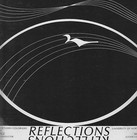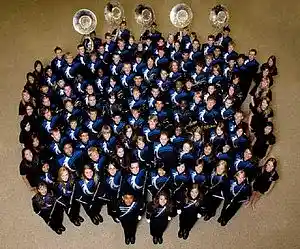

Contemporary band compositions, classical music arrangements, marches, jazz, symphonies, overtures. A collection from bands that I have played in throughout hi
Hello and welcome! "Symphonic Band Performances" is a compilation of recordings from several high school and college bands that I played in including the TMEA (Texas) All State Band, the TMEA Region X All Region Band, the Interlochen Arts Academy National Music Camp, the Cal Poly Tech Band, San Luis Obispo, the USAF Golden West Band, and recordings from my h.s. band, Beaumont H.S. and a few band recordings that were passed down to me. Also included are various All State groups and college and university bands. I participated and played in the large majority of these recordings.
There are no professional recordings here and every recording is Public Domain. Most are available for free download. Each song has been converted from the original analog or digital source and edited with Audacity or Dak software.
In the majority of these recordings, I play the tenor sax or alto sax, b flat or e flat clarinet, or directing. I was drum major for 2 years in high school, I have a BA from Cal Poly, San Luis Obispo, where I studied music ed, composition and theory. I had about 500 more recordings I was planning to digitize and upload, but this past Nov. 20th, my home was completely destroyed by fire, and all the contents, including all my music and instruments. So, this is it. Please feel free to post a comment here or on my member page. If you like, please become a fan by clicking "I'm a fan" below.
Song Info
Track Files
Story behind the song
Song Likes